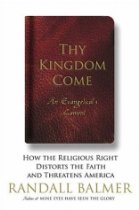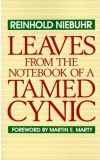
Who am I? This question rings from the dawn of human history and is uttered afresh in each of our individual lives. The question “Who am I?” is not answerable in isolation or independence, for there has never been a human being that has become an “I” without being in relation to someone and something else. Taking into account the vast array of relationships that constitute our lives, maybe the better question is, “Who am I in relation to … ?” For current purposes, let us ask, “Who am I in relation to digital technology?”

Why digital technology? Recently, the Methodist Church in Britain launched an application for the iPhone and iPod Touch that allows users to access daily prayers and Bible studies. According to the BBC, the Methodist Church hopes to target “both believers and those who might be more cautious about attending church” with its innovative application for these products.
By utilizing the versatility and privacy of these digital technologies, the Methodist Church seeks to appeal to those who would like to have “a daily dose of scripture, but are not keen on carrying a bible on their daily commute.” This new application complements the Church’s other digital programs such as Twitter, online bible studies, and blogs. The BBC also records the Methodists emphatically stress that “technology should complement, not replace traditional worship.”
In a time when Facebook, Twitter, Second Life, YouTube, and a multitude of other digital venues enable us to relate with others from around the globe in a variety of ways about a variety of topics, including religion as evidenced by the Methodist iPhone and iPod Touch app, we do well to reflect upon the question, “Who am I in relation to digital technology?” As we construct online identities through these programs and applications, who is the “I” being constructed? Does it correspond to the “I” who attends church board meetings; or the “I” who spends Saturday mornings at children’s sporting events; or the “I” who sits silently in private meditation; or the “I” who stands before the coffee machine at work waiting for a refill? No doubt, each of us has revolving “I” who make appearances and responds to diverse situations, yet it always serves us well to ask the critical question “Who am I?” in relation to these different contexts so that we may conscientiously constructs our identities.
Links
To read the BBC article “Methodist Church Launches App for iPhone” click here.



